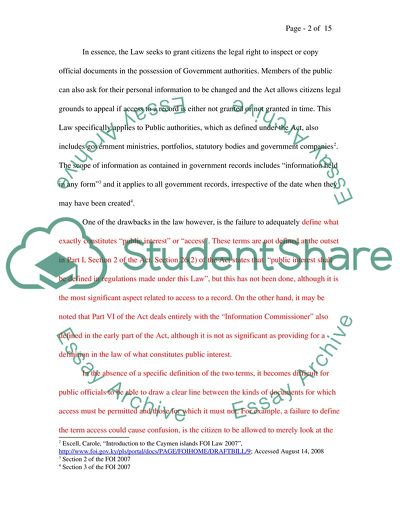Cite this document
(Does the freedom of information Law 2007 provides the Cayman Islands Essay, n.d.)
Does the freedom of information Law 2007 provides the Cayman Islands Essay. https://studentshare.org/law/1715635-does-the-freedom-of-information-law-2007-provides-the-cayman-islands-people-with-sufficient-access
Does the freedom of information Law 2007 provides the Cayman Islands Essay. https://studentshare.org/law/1715635-does-the-freedom-of-information-law-2007-provides-the-cayman-islands-people-with-sufficient-access
(Does the Freedom of Information Law 2007 Provides the Cayman Islands Essay)
Does the Freedom of Information Law 2007 Provides the Cayman Islands Essay. https://studentshare.org/law/1715635-does-the-freedom-of-information-law-2007-provides-the-cayman-islands-people-with-sufficient-access.
Does the Freedom of Information Law 2007 Provides the Cayman Islands Essay. https://studentshare.org/law/1715635-does-the-freedom-of-information-law-2007-provides-the-cayman-islands-people-with-sufficient-access.
“Does the Freedom of Information Law 2007 Provides the Cayman Islands Essay”. https://studentshare.org/law/1715635-does-the-freedom-of-information-law-2007-provides-the-cayman-islands-people-with-sufficient-access.


